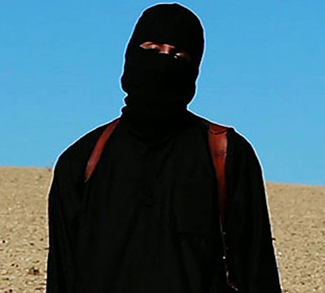Summary
A plot to to blow up an airliner over Detroit. The shooting rampage at Fort Hood. The attack on the USS Cole. What could they possibly have in common?
Call it the Yemen connection.
Report
The botched attempt by a Nigerian man to bring down a Northwest Airlines jet over Detroit on Christmas Day is the latest terrorist operation linked to extremists in the troubled country. Umar Farouk Abdulmutallab, the 23-year-old accused in the plot, said he was trained and equipped with chemical explosives by al-Qaida in Yemen, home to his mother’s family. The government confirmed Monday that he was in Yemen from early August to early December after obtaining a visa to study at a language institute.
“The situation is getting worse,” said Kirk Lippold, a former Navy officer who commanded the USS Cole in 2000 when al-Qaida militants in a bomb-laden boat rammed the destroyer in Yemen’s port of Aden, killing 17 sailors. “The government of Yemen is unable to control vast swathes of the country (and) as we squeeze the Afghanistan-Pakistan border area, they have to look for other places to operate.”
Christopher Boucek, an expert on Yemen at the Carnegie Endowment for International Peace, said there has been “almost a perfect storm” of economic and political factors that have destabilized the government of Yemeni President Ali Abdullah Saleh, providing a training base and haven for Islamic extremists.
A look at the conditions that have thrust this country of 24 million onto the world stage:
History of terrorism: Yemen has long been a “place of refuge, a place to come and relax” for al-Qaida operatives, said Gregory Johnsen, a Princeton University graduate student who was studying in the country as recently as August. He said that the birthplace of Osama bin Laden’s father is now home to a new and entrenched al-Qaida that rose from the ashes of an earlier generation of militants snuffed out after the Sept. 11, 2001, attacks.
Many of those captured in the wake of the 9/11 attacks were Yemenis who had gone to Afghanistan to fight. Of about 210 detainees still held at Guantanamo Bay, Cuba, the largest contingent, 91, are Yemenis. Of the half expected to be repatriated, Boucek said, most have ties to al-Qaida and would be considered high risks if released.
Poverty: Yemen is the poorest Arab country. Though it shares the Arabian peninsula with petroleum-rich Saudi Arabia and the other Gulf states, it is running out of oil, which accounts for as much as 80 percent of government revenue. Water is also drying up, perhaps a more dire prospect given projections that the population will double to more than 40 million over the next two decades. The unemployment rate is officially 35 percent but likely one in two Yemenis has no work, Boucek said.
Al-Qaida: The embattled central government has spent most of its energy tamping down a secessionist movement in the south and a civil war in the north. For years, Johnsen said, al-Qaida “had almost a tacit nonaggression pact with the Yemeni government – they wouldn’t target it and the government wouldn’t target them.”
That changed in 2006 when 23 prisoners escaped from a maximum-security prison in Sanaa, possibly with the help of Yemeni intelligence officials sympathetic to al-Qaida. Among those who broke out were several plotters in the Cole bombing and Nasser al-Wahayshi, a former aide to bin Laden who now leads al-Qaida in the Arabian Peninsula.
The group, known as AQAP, was formed in a merger between al-Qaida branches in Yemen and Saudi Arabia and includes at least two Saudi nationals who had been released from the Guantanamo Bay detention center in Cuba.
AQAP, which has its own jihadist Internet magazine called Sada al-Malahim, has been linked to a series of attacks inside Yemen against tourists, oil installations, schools and, in September 2008, the American Embassy in Sanaa.
This year, Yemen-based extremists took their battle over the border into Saudi Arabia. In April, the Saudis caught 11 people crossing the border with as many as 35 suicide bomb vests and discovered several hideouts meant to keep hostages.
In August, a Saudi national living in Yemen attempted to assassinate his office in Jeddah. The attacker was dispatched by AQAP.
The war entered a new phase this month as Yemen launched two air strikes believed to have killed more than 50 suspected al-Qaida militants. The latest attack, less than 24 hours before the failed attempt on the Northwest jet, targeted al-Wahayshi and Anwar al-Awalaki, the radical Yemeni-American cleric with ties to Maj. Nidal Malik Hasan, the U.S Army officer accused of murdering 13 people at Fort Hood, Texas, in November. Despite early reports that the men were killed in the operation, their deaths have not been confirmed.
U.S. involvement: U.S. officials have been vague over their role in the strikes, saying only that American forces provided intelligence and logistical support. The Yemeni official denied an ABC report that U.S. cruise missiles were launched against two suspected al-Qaida sites.
But other reports indicate that the CIA and U.S. military commandos have stepped up their activities in the country. The Pentagon has long played a role in training Yemen’s security forces but this year more than tripled military and counterterrorism aid to $66 million.
Johnsen said U.S. inattention is in part to blame for the situation in Yemen. After an initial push by President George W. Bush to get Yemen’s government to crack down on militants, both governments “took their eye off the ball,” he said. “Now the threat is so great and al-Qaida is so entrenched in Yemen, that there’s not a magic missile solution to this problem.”
What’s next? Sen. Joe Lieberman, I-Conn., noted the growing presence of Special Operations, Green Berets and intelligence agents on Fox News Sunday. “Yemen now becomes one of the centers of that fight,” he said. “Iraq was yesterday’s war. Afghanistan is today’s war. If we don’t act pre-emptively, Yemen will be tomorrow’s war. That’s the danger we face.”
But Patrick Lang, a former Army Green Beret who once served as a defense attache in Yemen, said he isn’t convinced Yemen is a major front in the war on terror and warned that the “intensely tribal” country bears an unsettling resemblance to another battlefield.
“All of Yemen is very much like the Northwest Frontier of Pakistan,” he said, referring to the lawless border sanctuary of al-Qaida along the Afghanistan border. “This is not a place where we ought to get committed in a big way.”


